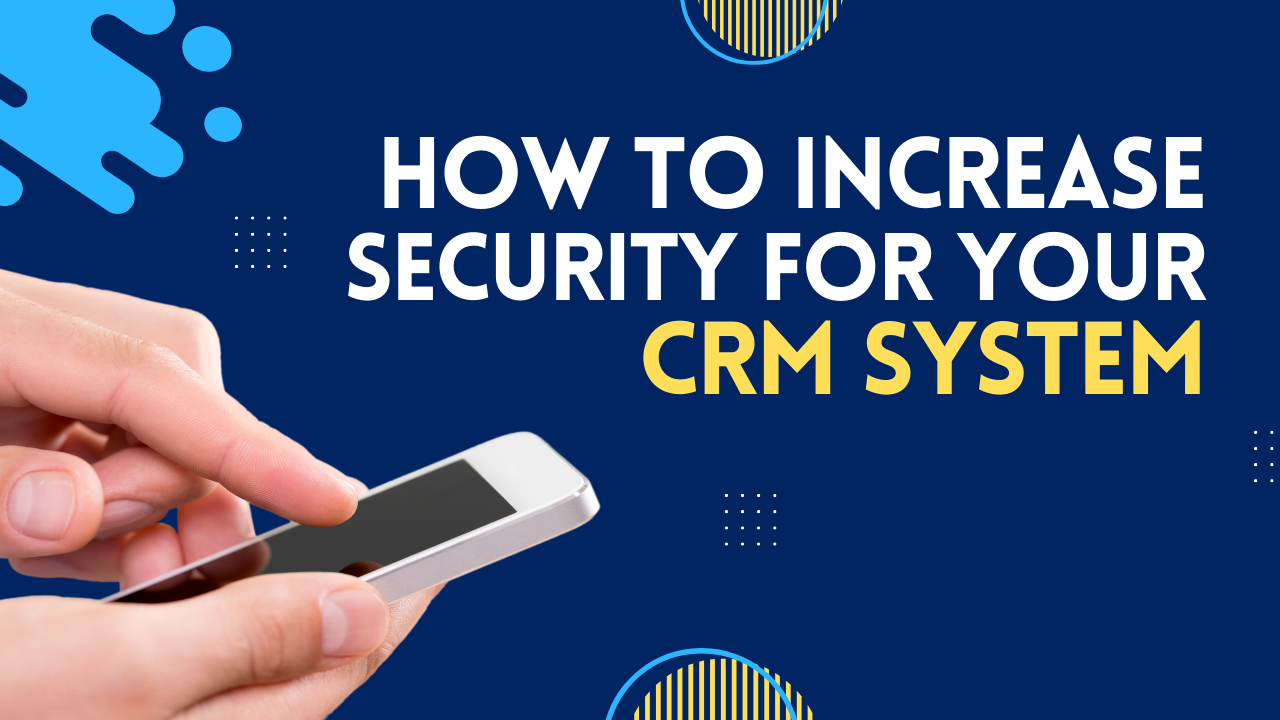In an era marked by stringent data protection regulations and increasing cyber threats, securing CRM systems is imperative for safeguarding sensitive customer information, maintaining trust, and complying with regulatory requirements. This blog delves into best practices and strategies to enhance CRM system security, enabling businesses to mitigate risks, prevent data breaches, and uphold data privacy standards.
Understanding the Importance of CRM System Security
1. Protecting Sensitive Customer Data
CRM systems store vast amounts of sensitive customer information, including contact details, purchase history, payment information, and communication records. Securing this data against unauthorized access, breaches, and cyber attacks is crucial to prevent financial losses, reputational damage, and legal repercussions. Robust CRM security measures safeguard sensitive data integrity and confidentiality, fostering trust and loyalty among customers.
2. Ensuring Regulatory Compliance
Compliance with data protection regulations, such as GDPR (General Data Protection Regulation), CCPA (California Consumer Privacy Act), and industry-specific standards (e.g., HIPAA for healthcare), is mandatory for businesses handling customer data. Implementing robust CRM security measures ensures adherence to regulatory requirements, avoids hefty fines, and demonstrates commitment to protecting customer privacy rights.
Best Practices for Securing Your CRM System
1. Implement Access Control Mechanisms
Deploy stringent access control measures to restrict system access based on user roles, responsibilities, and privileges. Utilize multi-factor authentication (MFA), strong passwords, and role-based access controls (RBAC) to authenticate users and enforce least privilege principles. Regularly review and update access permissions to minimize insider threats and unauthorized access risks.
2. Encrypt Data Transmission and Storage
Encrypt sensitive data both at rest and in transit to protect against unauthorized interception and access. Use industry-standard encryption algorithms (e.g., AES-256) to secure data stored within CRM databases, archives, and backups. Implement secure communication protocols, such as HTTPS/TLS, for encrypting data transmissions between CRM applications and external endpoints.
Strategies to Enhance CRM Security
1. Conduct Regular Security Audits and Vulnerability Assessments
Perform periodic security audits, vulnerability assessments, and penetration testing to identify potential weaknesses, system vulnerabilities, and compliance gaps within CRM systems. Engage certified security professionals or third-party auditors to conduct comprehensive assessments, prioritize remediation efforts, and strengthen defenses against evolving cyber threats.
2. Educate and Train Employees on Security Awareness
Promote a culture of cybersecurity awareness and best practices among employees through regular training programs and awareness sessions. Educate staff on recognizing phishing scams, social engineering tactics, and safe handling of sensitive information within CRM systems. Foster a proactive approach to reporting suspicious activities and adhering to security policies and procedures.
Incident Response and Recovery Planning
1. Develop an Incident Response Plan
Establish an incident response plan (IRP) outlining protocols, roles, and responsibilities for responding to security incidents, data breaches, or system compromises affecting CRM systems. Define escalation procedures, containment measures, and communication protocols to minimize impact, mitigate risks, and preserve data integrity during crisis situations.
2. Backup and Disaster Recovery
Implement regular data backups, encrypted storage, and disaster recovery strategies to ensure business continuity and data availability in the event of system failures, ransomware attacks, or natural disasters. Test backup integrity, restore procedures, and contingency plans to swiftly recover CRM data and operations without compromising customer service or operational efficiency.
Conclusion: Safeguarding Your CRM System
Securing CRM systems is paramount to protecting sensitive customer data, maintaining regulatory compliance, and safeguarding business reputation in a digital-first landscape. By implementing robust security measures, adhering to best practices, and fostering a culture of cybersecurity awareness, businesses can mitigate risks, enhance customer trust, and achieve sustainable growth in an increasingly interconnected world.
As businesses prioritize CRM system security, Sodio Technologies remains committed to delivering advanced security solutions and expertise that safeguard customer data, uphold regulatory requirements, and empower organizations to thrive securely. Embrace proactive security strategies to fortify CRM defenses, preserve data integrity, and uphold customer trust in an evolving cybersecurity landscape.

